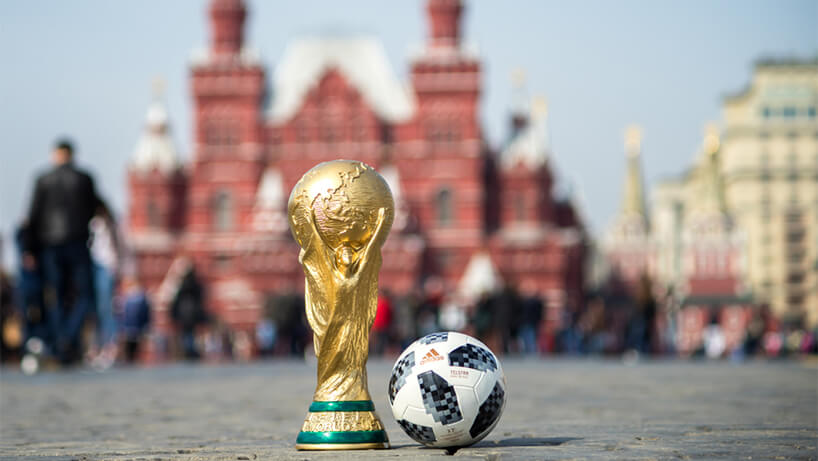Trendspotter
Personalised brand campaigns and clever destination marketing strategies scored during this year’s tournament in Russia.
Many football fans heralded Russia’s World Cup as one of the best in living memory. But, while the minnows flourished against the favourites, and football threatened to come home, another competition was taking place off the pitch.
With the world coming together for one of the largest sporting events on the planet, brands were vying to be part of the conversation, harnessing creativity to capture the imagination of fans around the globe. There was plenty of inspiration on offer for event planners.
In Russia, the tournament’s official smartphone sponsor Vivo installed brand experience pavilions at the Luzhniki and St. Petersburg stadiums. Using Vivo’s AI selfie technology, which included filters, scene recognition, and photo composition, fans were able to take creative snaps as they made their way to the matches, posting to social media for a chance to win a range of prizes.
Meanwhile, Adidas, whose brand ambassadors during the tournament included Lionel Messi, created a World Cup campaign focused on “Creativity is the Answer.” For its London audience, the sports brand created a bespoke venue called the Creator Base, which invited visitors to design customised shirts and footwear alongside of a fully installed football pitch and a live music area featuring artists including Stormzy.
The convening power of sporting events such as the World Cup has seen the rise of fan parks across key cities around the globe. For Alex Yau, director of meetings and events, MCI Hong Kong, these types of activations provide a unique chance for brands and sponsors to team up and maximise their message.

Alex Yau
“I first saw fan parks during the Rugby Sevens in Hong Kong. The cool thing about this concept is that it opens up partnership opportunities with other acclaimed brands who share the vision of attracting a certain type of audience, thus promoting creativity and ‘out of the box’ thinking,” Yau said.
It wasn’t just brands that were jostling for the spotlight during the tournament. The eyes of the world were on Russia as it delivered one of the largest and most logistically complex events in the country’s history. Major sporting events are seen as much a marketing opportunity for the host destination as they are for brands.
An event like the FIFA World Cup not only provides a chance to show off the host country’s culture and people, but it is also a case study for the country’s infrastructure to host large-scale gatherings. For Russia, this was an opportunity too good to miss.
An estimated 1 million fans made their way to Russia’s 11 host cities, filling hotels, restaurants, and public spaces for more than four weeks. A number of perks were laid on to make their experience more enjoyable, such as free trains for fans travelling between host cities. In Moscow, bilingual signs, in Russian and English, were added to metro stations and an app was launched to offer visitor information in six languages. The brand message for Russia was very much a welcoming one.
“Surely the successful organisation of such an important, large-scale athletic event speaks for itself when it comes to the country’s capabilities in hosting any type of event,” Yau said. “This is something that we can surely use when pitching this destination to prospects in the future. My perception [of Russia] … has grown stronger on the suitability of the destination.”

